
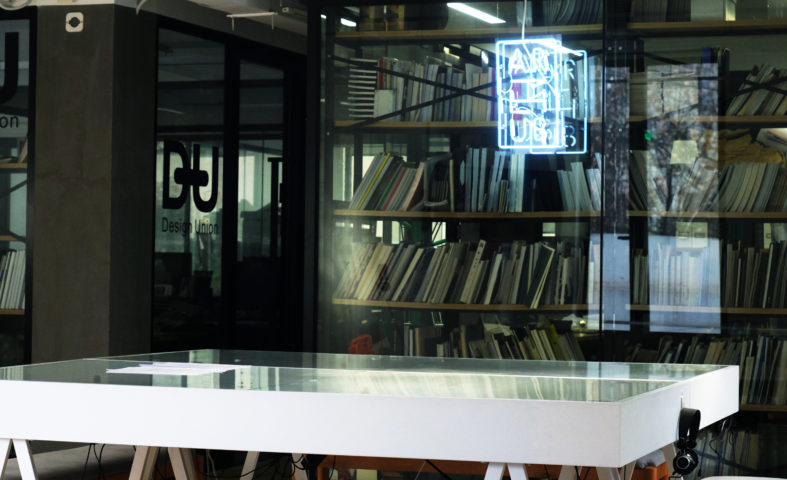
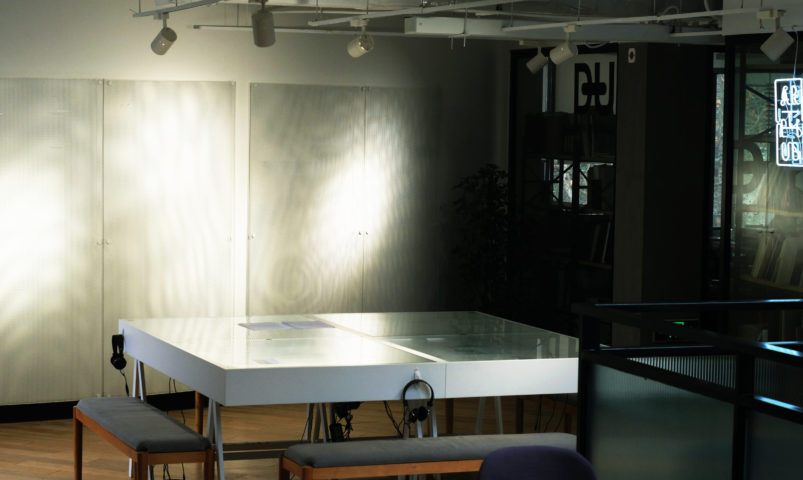
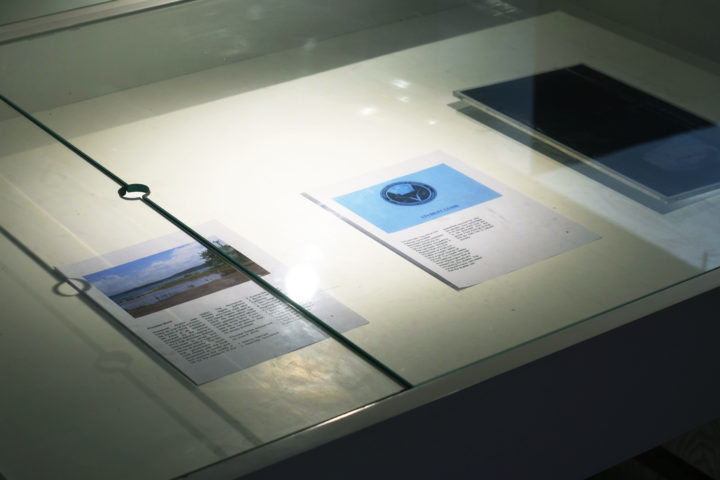

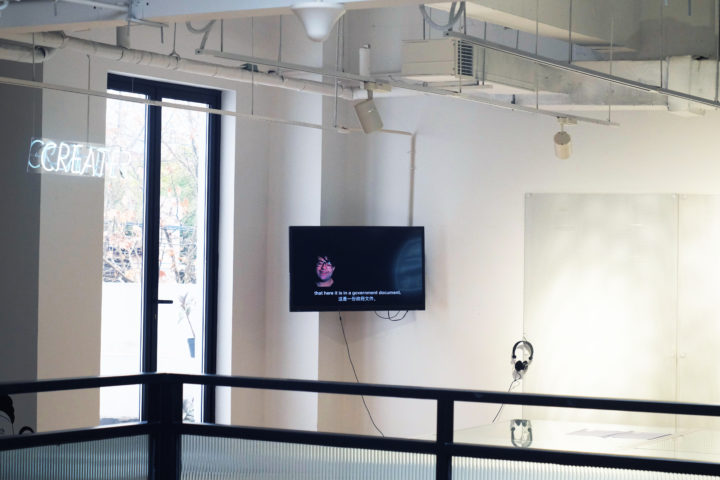
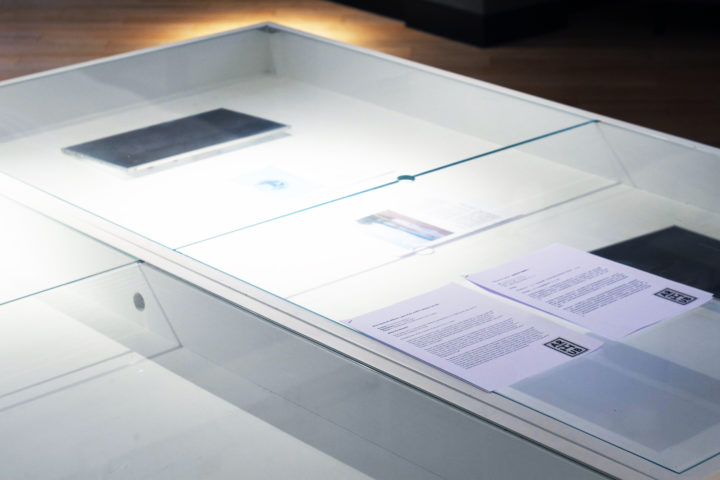
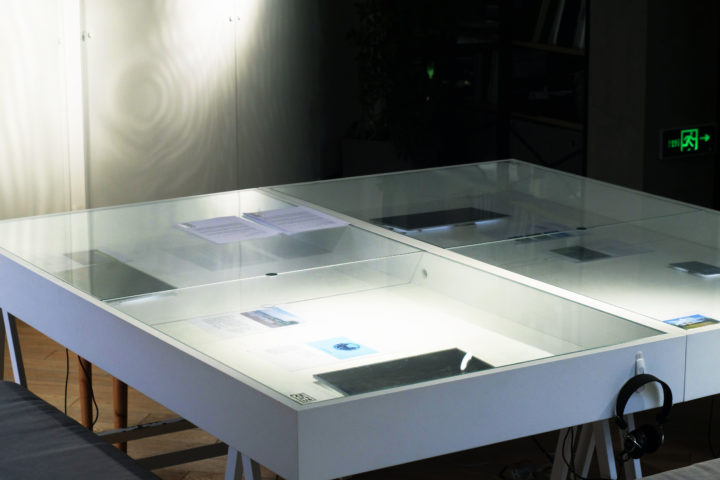
桌上展览:我觉得世界可能要毁灭了…
Maya Kaminishi Jeffereis:我觉得世界可能要毁灭了…
展期:2018年2月5日-3月5日
开放时间:周一-周五,10:00-18:00
地点:上海市华山路888号创邑 SPACE,3F
在线观看作品预告片和简短版本,请点击这里。
关于作品
《核灾难庇护所》,2016, 12屏录像装置(此次展览适配为单屏视频与5屏视频),56分钟
《罗斯福路》,2018, 6部档案喷墨印刷,8.5 x 11 英寸
《我觉得世界可能要毁灭了…》的标题来自作品《核灾难庇护所》(2016)中的台词,这是一部关于道德、身份政治、国家建设的思想实验,呈现的是核灾难之后的求生场景。视频构建了一次来自《军官训练手册》的美国海军训练。训练构想了一次核战争造成了大范围人类死亡,最终导致只有10人幸存,他们占领了由军方控制的庇护所。每一个幸存者都被有限的人口信息标签所标注,包括年龄、性别、种族、性取向。
艺术家邀请了演员来表演,呈现此次行动,让他们根据自己的标签来确定谁能留在庇护所中,以便在未来“重建社会”。他们所扮演的庇护所居民,以录制视频的方式,像忏悔般的形式来讨论自己的决定。最终呈现的结果以复调叙事的方式呈现,展示出身份政治的复杂线索以及他们对未来乌托邦的构想。揭示出了道德观、偏见、理想,视频忏悔和纪录访谈的形式把现实与虚构混杂在一起,让角色的表演和表演本身变得错综复杂。
展览还包括了一系列摄影作品,呈现的是位于波多黎各的前美国海军基地罗斯福路的景象。该海军基地建于二战后,是美国在加勒比海地区不熟的战略空军基地,美国曾在别克斯群岛东部地区的大范围地区进行过轰炸等类型的军事训练和演戏。重金属和有毒化学物例如废弃的铀和橙剂曾在这些训练中被使用,导致居住在加勒比地区这些群岛的居民拥有极高的癌症发病率。该海军基地于2004年关闭,但是也遗留了一些关于土地使用和如何发展的问题。这片地区处在废弃和占领之间的尴尬境地,是继续归军方还是去军队化、属于美国还是波多黎各、是帝国领土还是本地领土、允许外国投资还是本地经营等问题一直没有解决。
关于艺术家
Maya Kaminishi Jeffereis, 生于洛杉矶,目前工作生活在纽约。
Maya Kaminishi Jeffereis 是一位擅长使用调研为基础的艺术家,主要创作内容为录像、行为表演和社会议题。她的作品关注身份政治的历史化和纪念化,通过重新语境化、重新想象或重新构建当下的进程来直面探讨历史主导与边缘化。与令人担忧的现实一起,通过使用访谈、记录或历史事件实现她实验性叙事与纪录片的出发点, 她探讨在场与不在场之间的空间、个人对历史叙事的记忆与消除。
她近期的展览和公映由 NARS 基金会(2018年成立)组织,纽约布鲁克林;chashama, 纽约布鲁克林(2018);赫施霍恩博物馆及雕塑园,华盛顿特区(2017);SOHO20画廊,纽约布鲁克林(2017);Flux Factory, 纽约皇后区(2016);新不列颠美国艺术馆,新不列颠,康涅狄格(2016)。
她曾获得 NARS 基金会奖、班夫艺术创意中心的哈斯凯恩夫妇艺术家奖、佛蒙特工作室中心、贝米斯当代艺术中心、希斯内罗丝拉美艺术初创、Luetz Riedel 基金。Jeffereis 获得纽约亨特大学的纯艺硕士学位、西雅图华盛顿大学的纯艺硕士学位和学士学位。